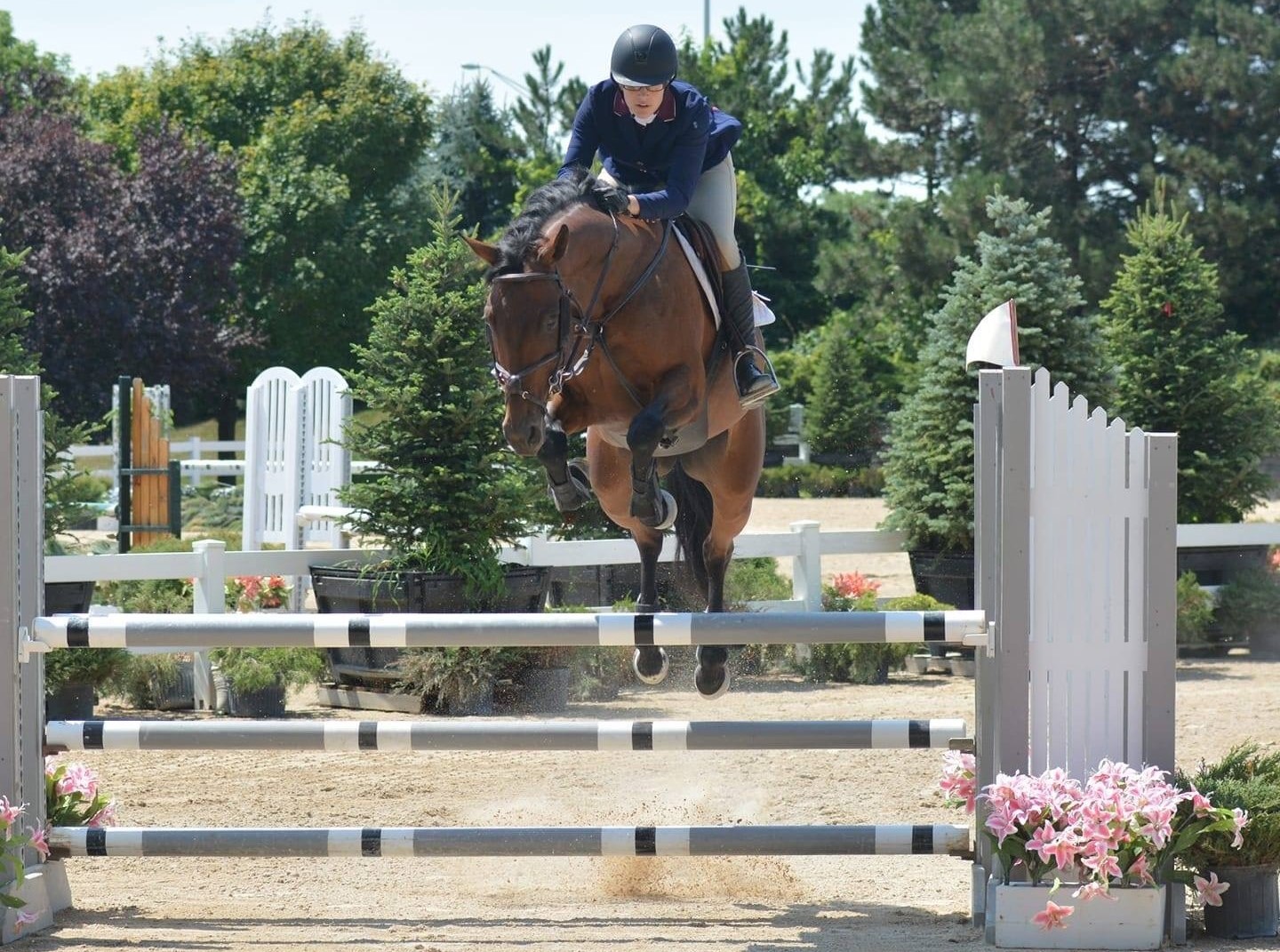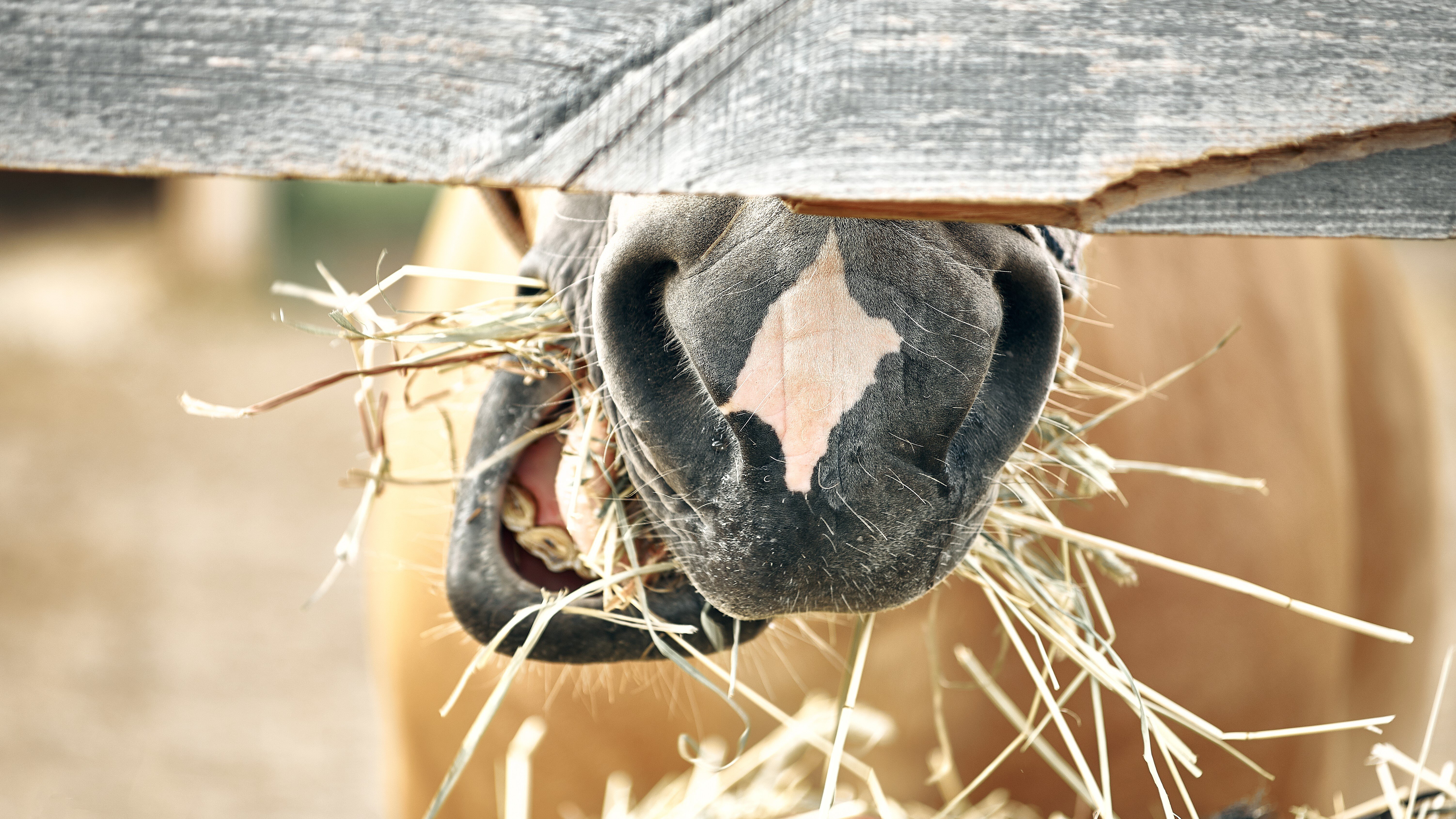Causes & Signs of Ulcers in Horses & How to Prevent Them
September 08, 2023
Causes & Signs of Ulcers in Horses & How to Prevent Them
In this article, award-winning trainer/educator Julie Goodnight talks about the signs and causes of horse ulcers and how to prevent them. Julie offers guidance to horse enthusiasts in articles and through clinics and appearances. She teaches horsemanship domestically and internationally, and was named Exceptional Equestrian Educator by Equine Affaire.
Horse Ulcers are a Common Problem
Research shows that more horses have ulcers than don’t. The statistics are overwhelming, and in some regards, it’s easier to assume a horse has stomach ulcers than to assume it doesn’t.
According to the AAEP (American Association for Equine Practitioners), up to 90 percent of racehorses and 60 percent of show horses, as well as non-performance horses and even foals, are affected by equine gastric ulcers. Ulcers result from an erosion of the stomach lining from excess stomach acid.
Signs of Ulcers in Horses
Gastric ulcers can affect any horse, regardless of age or circumstance, and is often a manmade condition brought on by stress.
Definitively diagnosing equine ulcers is a challenge because of the specialized equipment needed to scope a horse’s stomach. However, horses with ulcers may show symptoms of:
- Frequent colic episodes
- Lack of appetite
- Depressed attitude
- Failure to thrive—often referred to as a “hard-keeper"
Why Even Healthy Horses Develop Ulcers
Sometimes we treat the symptoms but forget to address the cause of ulcers in horses. What causes a horse stress? It's different for each horse and may be hard to suss out. It could be something as obvious as a heavy training/travel/competition schedule or something as subtle as a bully in the herd.
Here are some possible stressors that may cause equine ulcers:
- Confinement
- Training and performance
- Feeding procedures
- Relocation
- Instability in the herd
- Isolation or separation
Preventing Equine Ulcers
To me, prevention is key. Addressing lifestyle, reducing stress, and examining your feeding program can be helpful in preventing gastric ulcers and keeping your horse healthy.
Lifestyle and Stress
I believe we owe it to our horses to make their lives as comfortable and stress-free as possible. Examine your horse's daily routine. Are there ways you can ease or eliminate stress for your horse? Giving your horse plenty of access to other horses will also help them feel happier.
Feeding Program
Keeping a horse's digestive track full, as it was designed to be, is a good place to start preventing ulcers. Feeding a free-choice, low-protein grass hay and a balanced diet will help a lot.
Treating Gastric Ulcers in Horses
Pharmaceuticals are available to heal equine ulcers and are highly effective, but also highly expensive. Redmond Daily Gold is an affordable alternative to expensive pharmaceuticals to help prevent ulcers. I use Daily Gold on my own horse Dually. It's a bentonite clay-based mineral supplement that helps neutralize stomach acid buildup, and improve appetite, digestion and gut health in horses. Click below to learn more.
Learn More
- Dive deeper into the topic of gut health for horses and common causes and prevention for digestive issues.
- Is your horse a fussy eater? Try Daily Gold pellets! They are alfalfa-based to appeal to picky palates.
© Redmond Equine 2023. All rights reserved.
Related posts

Rebecca's Horses Showed Signs of Digestive Stress | A Redmond Story
Rebecca's show horses exhibited behaviors of equine ulcers, but Daily Gold Stress Relief reduced their ulcer symptoms. Learn how it can help your...
December 18, 2024

How to Naturally Improve Your Horse's Gut Health
Learn about the digestive system of a horse, how to improve horse gut health, and the best ulcer and gut supplement for horses to elevate basic...



